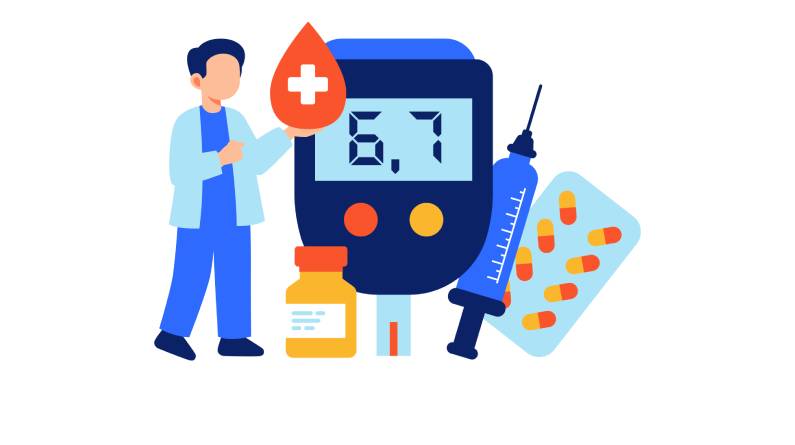Understanding Prediabetes: A Warning Sign for Diabetes
Prediabetes is a condition where your blood sugar levels are higher than normal, but not high enough to be diagnosed as diabetes. It’s a warning sign that you’re at risk of developing diabetes, and it’s essential to take action to prevent or delay its onset.
What Happens in Prediabetes?
In prediabetes, your body is unable to process sugar normally, and sugar builds up in your blood. This can happen for two reasons:
1. Insulin Resistance: Your cells become resistant to insulin, making it harder for glucose to enter the cells.
2. Insulin Deficiency: Your pancreas doesn’t produce enough insulin to lower blood sugar levels.
Risk Factors for Prediabetes
Several factors increase your risk of developing prediabetes:
1. Excess Body Weight: Carrying excess weight, especially around the abdomen, increases insulin resistance.
2. Unhealthy Diet: Consuming sweetened products, red and processed meat, and refined carbohydrates contributes to high blood sugar levels.
3. Sedentary Lifestyle: A lack of physical activity can lead to weight gain and insulin resistance.
4. Age: Risk increases after 45 years.
5. Family History: Having a family history of diabetes or prediabetes increases your risk.
6. Other Health Conditions: Obstructive sleep apnea, polycystic ovary syndrome, and gestational diabetes during pregnancy also increase the risk.
Symptoms and Diagnosis
Prediabetes often has no specific symptoms. However, if you’re at risk, it’s essential to check your blood sugar levels regularly. Diagnosis is done through:
1. Fasting Blood Glucose Test: Values between 100 and 125 mg/dL indicate prediabetes.
2. A1C Test: Measures average blood sugar over the past 3 months; values between 5.7 and 6.4% indicate prediabetes.
Prevention and Management
To prevent or manage prediabetes, focus on:
1. Healthy Diet: Eat a balanced diet rich in nutrients and low in fat.
2. Regular Exercise: Engage in physical activity to maintain a healthy weight and improve insulin sensitivity.
3. Enough Sleep: Aim for 7-8 hours of sleep per night.
4. Stay Hydrated: Drink water instead of sweetened beverages.
By adopting these habits, you can reduce your risk of developing prediabetes and diabetes, and maintain overall health and well-being.
References:
https://www.webmd.com/diabetes/what-is-prediabetes
https://www.mayoclinic.org/diseases-conditions/prediabetes/symptoms-causes/syc-20355278
https://www.cdc.gov/diabetes/basics/prediabetes.html
https://familydoctor.org/condition/prediabetes/

